You're in the fast-paced world of AI content creation, but you're unsure about the ethical side? Don't worry! This article will guide you through the five best practices to ensure your AI-generated content is ethical.
You'll learn about:
- Transparency: Understanding the importance of disclosing AI-generated content to your audience. Transparency builds trust and allows users to differentiate between human and AI-generated content.
- Accuracy: Ensuring that the information provided by AI-generated content is reliable and factually correct. It's crucial to verify the accuracy of the data used by AI algorithms to prevent spreading misinformation.
- Accountability: Taking responsibility for the actions and consequences of AI-generated content. Establishing clear guidelines and protocols to address any potential biases, errors, or ethical concerns that may arise.
- Privacy: Respecting user privacy and protecting personal data. AI algorithms must adhere to data protection regulations and prioritize the privacy rights of individuals.
- Ongoing Training: Continuously updating and refining AI models to improve their performance and minimize ethical risks. Regularly reviewing and retraining models can help address biases, improve accuracy, and enhance the overall ethical standards of AI-generated content.
Buckle up and let's dive into ethical AI content creation together!
Key Takeaways
- Label AI-generated content clearly to inform the audience about its origin.
- Establish clear guidelines and protocols for addressing biases or errors in AI-generated content.
- Take responsibility for the actions and consequences of AI-generated content and fix inaccuracies or problematic content.
- Continuously update and refine AI models, train them with diverse data sets, and regularly assess their performance to ensure ethical and accurate AI-generated content.
Understanding AI Content Creation Ethics
To get a handle on AI content creation ethics, you've got to first grasp the potential implications and responsibilities that come with utilizing artificial intelligence in generating content. It's not just about using the technology to churn out articles or social media posts. It's more about understanding the risks, pitfalls, and moral considerations that come into play.
You've got to think about fairness, transparency, and accountability. For instance, if an AI tool creates biased or discriminatory content, it's you who'll be held responsible, not the machine. That's why it's crucial to ensure that the AI systems you use are trained on diverse, unbiased datasets and tested thoroughly for fairness.
Transparency is another biggie. You can't just use AI to generate content without letting your audience know. It's your duty to disclose when a piece of content is AI-generated. This not only builds trust with your audience, but also helps them make informed decisions about the content they consume.
Finally, you've got to be accountable for the AI-generated content. This means being ready to answer any questions, address any concerns, and fix any issues that might arise. Remember, just because a machine generated the content, doesn't absolve you from the responsibility.
Understanding AI content creation ethics is a big step towards using AI responsibly. It might seem daunting, but it's an essential part of navigating the AI-powered content landscape ethically and effectively.
Transparency in AI-Generated Content
While you're deploying AI for content creation, it's crucial that you maintain transparency with your audience, letting them know when the content they're reading or interacting with has been generated by an AI. This practice not only builds trust but also helps in setting realistic expectations for the AI-generated content.
Here are four ways to ensure transparency in AI-generated content:
- Clearly Label AI-Content: Always label the content that's AI-generated. By being upfront about the AI involvement, you're promoting honesty and integrity in your operations.
- Explain the AI's Role: While it's important to label AI-generated content, it's equally vital to explain the AI's role in the content creation. This helps your audience understand the limitations and strengths of the AI, and it also gives them a sense of control knowing when they're interacting with AI.
- Provide Information about AI's Training Data: Your audience has a right to know the kind of data your AI has been trained on. By sharing this, you're not only being transparent, but you're also educating your audience about the AI's potential biases.
- Establish an Open Communication Channel: Your audience may have questions or concerns about the AI-generated content. Always provide a channel for them to voice these concerns and make sure to address them promptly and sincerely.
Accuracy and Accountability Measures
In your endeavors to use AI for content creation, it's essential that you adopt several measures to ensure the accuracy and accountability of your AI-generated content. It's more than just a best practice, it's an ethical responsibility. Remember, the AI tools you're using are only as good as the data they're trained on.
Start by ensuring the data you use for training your AI is accurate, diverse, and representative of the real world. This helps your AI understand and mimic human language patterns effectively, generating content that's not only accurate but also relevant and engaging.
Accountability comes into play when your AI does something unexpected or wrong. To manage this, it's crucial to have a fail-safe mechanism in place. This can be as simple as a manual review process or as complex as a secondary AI system designed to check the first one.
Next, you should always be prepared to take responsibility for your AI's outputs. If your AI generates content that's inaccurate or problematic, it's your job to fix it. Don't blame the machine; instead, look for ways to improve your training data or the AI's algorithms.
Lastly, you must continually test and retrain your AI. The world changes, language evolves, and your AI should evolve with it. Regular testing ensures your AI's accuracy remains high and its errors stay low.
Respecting User Privacy
Now, let's delve into the next critical aspect of ethical AI-generated content: respecting your users' privacy. As AI evolves, it's becoming more capable of collecting and analyzing vast amounts of data. However, this doesn't mean you should disrespect the privacy of your users. You've got to ensure that your AI systems uphold the highest standards of data privacy.
Here are four best practices to consider:
- Obtain Explicit Consent: Never collect or use personal data without the user's explicit consent. Make sure to clearly inform users about the data you're collecting and how you'll use it.
- Limit Data Collection: Only collect the data you absolutely need. Extraneous data not only increases the risk of privacy infringements but also makes you a more attractive target for cyber attacks.
- Implement Strong Security Measures: Protect your users' data from unauthorized access. This includes implementing robust encryption, conducting regular security audits, and promptly patching any discovered vulnerabilities.
- Provide User Control: Give users control over their data. This means allowing them to access, modify, and delete their data. It also includes giving them the option to opt out of data collection entirely.
By adhering to these practices, you're not only respecting your users' privacy but also building trust. Remember, trust is the backbone of any successful business. So, make sure your AI systems aren't only intelligent but also ethical.
After all, what's the use of smart technology if it can't respect basic human rights like privacy?
Ongoing Ethical AI Training
So, how do you ensure that your AI systems remain ethical as they continue to learn and evolve? The key lies in ongoing ethical AI training. This isn't a one-time deal, but rather a continuous process that requires regular check-ins and updates.
Firstly, you'll need to ensure that your AI algorithms are transparent. That means they're designed in a way that allows you to understand how they're making decisions. If you can't see what's going on under the hood, it's hard to ensure that those decisions are ethical.
Next, you've to keep training your AI systems with diverse data sets that reflect a wide range of scenarios, cultures, and populations. This can help prevent biases from creeping in. Remember, AI systems learn from the data they're fed, so if that data is skewed, the AI's decisions might be too.
It's also important to regularly assess your AI's performance. Are there any unexpected outcomes or biases emerging? If so, you'll need to tweak your algorithms or training data to correct them. You can't just set and forget; active monitoring is crucial.
Moreover, involve ethics experts in the process. They can help you navigate complex issues and make sure you're considering all relevant factors.
Lastly, don't forget to keep your team updated on ethical AI developments. As the field evolves, there'll be new challenges and considerations to keep in mind. Regular training sessions can ensure that everyone's on the same page.
Frequently Asked Questions
How Can Ai-Generated Content Be Monetized?
You can monetize AI-generated content in several ways.
- One approach is to sell it directly to users. By creating high-quality AI-generated content that meets a specific demand or solves a problem, you can offer it as a product or service for users to purchase. This can be done through various platforms or marketplaces, or even through your own website or app.
- Another option is to use AI-generated content to drive traffic to your site. By providing valuable and engaging content generated by AI, you can attract users to your website or platform. Once they are there, you can then offer other products or services for sale, such as physical products, subscriptions, or additional content.
- Additionally, AI-generated content can be used to attract advertisers. If your AI-generated content is popular and draws a large audience, advertisers may be interested in partnering with you to display their advertisements alongside your content. This can be done through various advertising networks or through direct partnerships with brands.
- Another potential revenue stream is licensing your AI technology to other businesses. If you have developed a unique and valuable AI technology that can generate high-quality content, other businesses may be interested in using it for their own purposes. You can license your technology to them, either for a one-time fee or through a recurring licensing agreement.
It's important to remember, however, that the key to successfully monetizing AI-generated content is to ensure that the content is valuable, unique, and enhances the user's experience. This will help attract users and keep them engaged, which in turn will increase the chances of generating revenue through the various monetization methods mentioned above.
What Are the Potential Legal Issues Surrounding AI Content Creation?
When creating AI content, you may face potential legal issues around copyright infringement, data privacy, defamation, and misinformation.
If your AI generates content that mirrors copyrighted work, you're infringing on those rights. Also, if it collects personal data without consent, you're breaching privacy laws.
Misinformation can lead to defamation lawsuits. So, it's crucial to understand these risks and follow appropriate guidelines to avoid legal pitfalls.
How Is AI Content Creation Changing the Landscape of Traditional Content Generation?
AI content creation is revolutionizing the traditional content generation landscape. You're now observing faster and more efficient content production with AI. It's not only changing how content is created but also its quality and relevance.
However, it's crucial to remember that while AI can offer numerous benefits, it also presents unique challenges. Understanding and adapting to these changes is key to leveraging the advantages of AI in content creation.
What Is the Potential Impact of Ai-Generated Content on Employment in the Content Creation Sector?
AI-generated content could alter employment in the content creation sector significantly. You might find jobs shifting as AI takes over routine tasks, allowing you to focus more on creative and strategic aspects.
However, there's also a risk of job losses if AI can perform tasks more efficiently.
It's crucial you stay adaptable, upskill, and learn to work alongside AI to seize new opportunities this tech revolution brings.
Are There Any Industry-Wide Standards or Guidelines for AI Content Creation?
You're likely wondering if there are industry-wide standards or guidelines for AI content creation. Currently, there's no universal standard.
However, some organizations are developing guidelines to ensure ethical AI practices. They're aiming to balance innovation with responsibility.
As you navigate this emerging field, it's crucial to stay informed about these evolving guidelines, apply them in your work, and contribute to discussions about maintaining ethics in AI content creation.
Conclusion
In sum, ethical AI-generated content isn't just a luxury, it's a necessity. Embrace transparency and hold your AI accountable.
Prioritize accuracy in output and respect user privacy. Don't forget to continually train your AI to uphold these ethical standards.
This way, you can leverage AI-powered content while keeping integrity and trust at the forefront. Remember, it's not just about using AI, it's about using it responsibly.
















